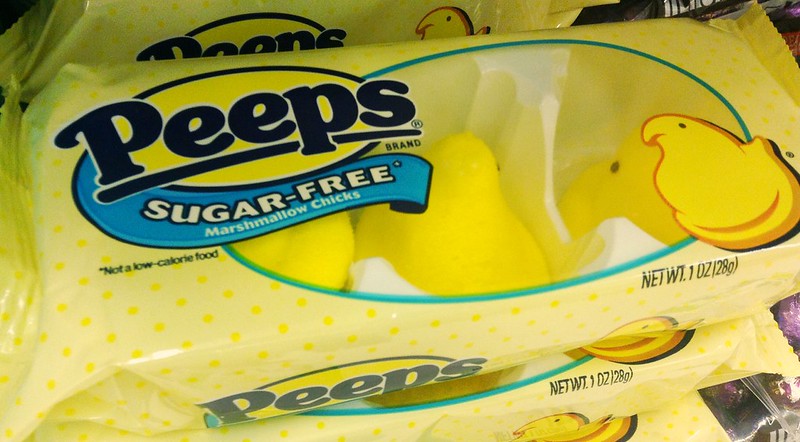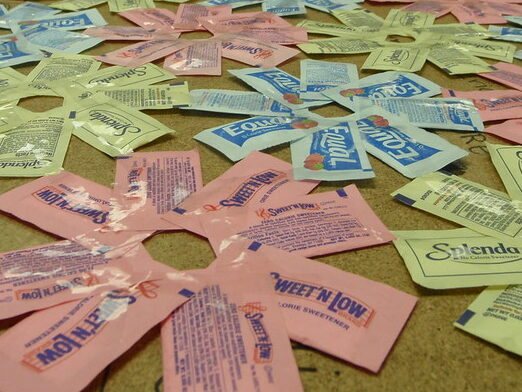With the onset of 100 plus degree temperatures, we often turn to beverages that cool us off. Are sugar free drinks in your fridge? Beware, you may believe they help you cut back on sugar, but sometimes they trick you.
We might feel like it’s a far cry better than the “good ol’ days.” How many of us grew up in the Kool-Aid era when we added cup after cup of sugar and a small colorful packet of powder to water? I remember it was such a yummy, cooling treat!
Then in my high school years came the first microwave in our kitchen and the use of Splenda in the form of Crystal Light drinks. You only used the packet and water.
Back in the day, if something was “sugar free” that usually meant that there was no sugar added to the product.
But now, I find the meaning on labels has become confusing, even to me, so it’s important that I share with you the truth.
Are you ready? This may burst some bubbles.
“Dang, I thought that XYZ food/drink was a healthy choice!”
But with the truth comes a chance to make better decisions and certainly have better health!
When you see a product with a label that states “sugar free” be sure to carefully examine the ingredient list on the back of the package. As a consumer, you want to be clear about what the manufacturer is really putting in your food.

First, in the list of ingredients, there should not be any mention of “sugar” in any form! Bad news: there are over 61 different types of sugar ingredients. A research team at UC San Francisco has a complete list here.
FYI—beet sugar has a high possibility of being a genetically modified organism, that is to say, a GMO. If it doesn’t say it is organic, it isn’t, so put it back on the shelf if you’re looking to reduce your pesticide exposure.
If there’s no “sugar” on the label, it’s still tricky to discover what the sweetener is.
What to Look for In “Sugar Free” Drinks
Is it a sugar alcohol such as xylitol or is it artificial like Splenda? Sugar alcohols have a structure similar to that of sugars but also contain an alcohol molecule. This means they taste sweet but are not absorbed and metabolized in the same way as sugar.
The body responds to each of these very differently. Sugar alcohols are derived either from a plant or by a chemical process used to isolate the sugar. A sugar alcohol is metabolized in a way that usually does not increase blood sugar. It does not have broad spread negative ramifications for the body. The word itself will end with an “ol” like xylitol.
An artificial sweetener (blue, pink or yellow packets) will have more of a chemical sounding, harder to pronounce type of name. We’re learning more all the time. For example, sucralose has been moved from a “safe” rating to “caution” rating from the Center for the Public Interest in Science.

Some studies have shown that sucralose, found in many sugar free drinks, can change your gut microbiome, cutting the number of good bacteria by as much as half. Research done on animals shows that sucralose can also increase inflammation in the body.
Over time, inflammation can lead to problems like obesity and diabetes.
Sucralose alters the pH of the intestinal tract, and it reduces the number of beneficial bacteria in the gut. (Wouldn’t it be nice if you didn’t need your probiotics because the good guys actually regained control of your gut?)
Sucralose also activates your detoxification system, which increases the demand for nutrients. So instead of you generating your own energy, or burning unwanted body fat, your precious nutrients have to work at breaking down these artificial substances.
There may be serious unwanted side effects from use of artificial sweeteners as the body works to process them and the natural digestive process is altered. Organs and even brain function may be affected.
So, break out your magnifying glass, read the labels of ALL of your products purchased. If it says “sugar free,” and it tastes sweet, be aware that something is used to make the product tastier.
Don’t be fooled into automatically thinking that sugar free drinks are better for you.
Medical Disclaimer: The information provided in this email is for informational purposes only and has been compiled from years of practice, study and experience by Mikell Suzanne Parsons, DC. This information is NOT intended to be used as a substitute for the advice from your physician or any other health care provider, or any information contained in or on any product label or packaging. Do not use information in this email for diagnosing or treating any health problem or disease. Always speak to your health care provider before taking any nutritional, herbal, or homeopathic supplement. If you have or suspect that you have a health problem, contact your health care provider immediately. Do not ignore seeking health care advice or delay seeking care because of something that you have read in this email. Information provided in this email DOES NOT create a doctor-patient relationship between you and Mikell Suzanne Parsons, DC. Information and statements regarding dietary supplements have not been evaluated by the Food and Drug Administration and are not intended to diagnose, treat, cure, or prevent any disease.
Full Disclosure: If you happen to purchase anything I recommend in this or any of my communications, it is possible that I will receive some kind of affiliate compensation. I only recommend people and programs I believe in and feel that you will get tremendous value from. However, if you ever have an issue with something I recommended please let me know by hitting “reply” and sharing your thoughts.
Main image: Photo by Gabriel Gurrola on Unsplash
